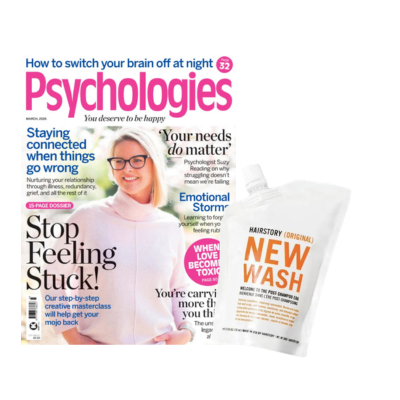Beyond dairy
The debate over whether or not to go dairy-free has never been hotter. So should you give it up? And if you do, which milk alternative will suit you best? Helen Foster reports

Since childhood we’ve been told that milk will make us strong and healthy – but is this still the truth? Even among nutritionists, the debate rages on.
In one camp, milk provides a pretty perfect package of protein, minerals and vitamins that boosts general health. In the other, it’s a dangerous cocktail of lactose and hormones that can lead to intolerance and illness. The average 100ml serving of semi-skimmed milk contains 48 calories, 1.7g of fat, 3.4g of protein, a handful of natural sugars and 123mg of calcium.
It’s also a good source of B vitamins, vitamin A, minerals such as magnesium and added vitamin D.
That combination alone leads Jane Clarke, nutritionist and author of Bodyfoods (Weidenfeld & Nicolson), to conclude: ‘Milk is a good food. It’s cheap, not packed with artificial colours, sugar or salt, and unless you’ve got a clear allergy to it I can’t see any reason why it shouldn’t be part of your diet.’
The white stuff Recent studies have suggested women who drink dairy are leaner than those who skip milk, that men who drink a pint a day reduce their risk of stroke and heart attack by 30 per cent, that a glass of milk a day may cut rates of colon cancer by 12 per cent and that women who eat two servings of dairy a day have more than 10 per cent less risk of high blood pressure than other women. On paper then, the case looks closed. But with new research, the picture is becoming less clear. Take bone health – often the primary reason women consume milk. When Dr Amy Lanou, from the University of North Carolina examined the 37 studies comparing calcium intake and bone density, she found 27 of them showed no link and the other 10 showed only a small correlation. ‘The evidence that milk builds bones just isn’t there,’ she told us. ‘Exercise has a far greater impact on bone density than dairy products do.’
Digestion difficulties Then there’s intolerance. At least 10 per cent of the population can’t fully digest milk as they don’t produce enough of the enzyme lactase. ‘If you’re one of these, then coming off milk could reduce symptoms such as bloating, wheezing, eczema and more,’ says Harley Street naturopath Khush Mark.
6 alternatives to dairy
1. Lactose-free milk ‘This is basically semi-skimmed milk with some of the lactose filtered out and the rest neutralised by adding lactase enzyme,’ explains Trish Gowans, a dietician who specialises in gastrointestinal disorders. ‘As a result it will give you all the health benefits of traditional milk, but without any of the lactose-related side effects.’
2. Oat milk Made by soaking oats, oat milk has eight times more fibre than the other milks. On top of this, that fibre contains substances called beta glucans. Known for their immune-boosting ability, beta glucans also act on cholesterol. In trials at Sweden’s Lund University, men who drank oat milk for five weeks lowered their cholesterol by six per cent. Oat milk does, however, usually contain some levels of gluten.
3. Goat’s milk It might only contain 0.4g less lactose per 100ml than cow’s milk, but many people who say they can’t drink cow’s milk can tolerate goat’s milk. ‘The milk protein is slightly different,’ says nutritionist Yvonne Bishop-Weston. However, the ultimate health boost of goat’s milk may come from what it does to the foods you consume with it. In studies by the University of Granada, iron, copper, zinc and calcium were all better absorbed with a diet of goat’s milk, than with cow’s.
4. Rice milk Because rice is a very low allergenic product, rice milk is the best choice for those who have intolerances. Made from processed brown rice, it’s virtually protein free and high in carbohydrates. ‘When switching from cow’s milk to rice milk, some people find they get hungrier, especially if they are using it on cereal,’ says Khush Mark. ‘Adding a little protein such as nuts to cereal will help keep blood sugar stable.’
5. Soya milk Made from soya beans, fortified soy milk is virtually identical in nutritional make-up to cow’s milk, but with a dose of isoflavones, natural oestrogen compounds that may balance hormone levels and improve bone strength. Diets that contain 25g of soy protein (one 250ml glass has about 9.5g) are also associated with a lower risk of heart disease.
6. Nut and seed milks High in mono-unsaturated fats that boost heart health, these are made by soaking ground nuts and seeds and extracting the white liquid that forms. The more nuts/seeds that are used, the healthier the product. Nutritionists often recommend making your own – not only is it cheaper, but the milk tastes better and you can experiment with your favourite nuts and seeds.









